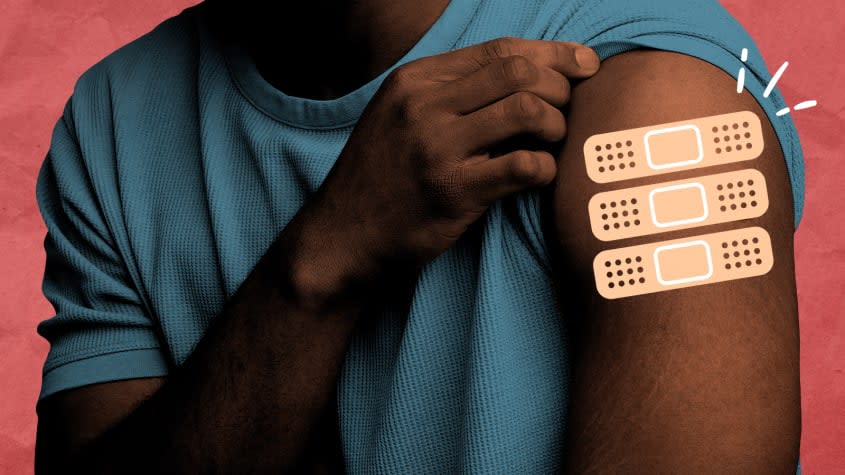America has gravely undervalued booster shots

The Centers for Disease Control recently updated their recommendation for coronavirus booster shots: Now they endorse everyone over the age of 18 getting one, so long as they are at least two months out from a Johnson & Johnson shot or six months out from their second dose of Moderna or Pfizer. The CDC also says that you can mix and match any booster with any previous shot.
The new guidance comes after a prolonged debate among scientists about who exactly should get boosters and when, and as a result, the messaging has been muddled. Only about one in 10 Americans have gotten their boosters so far, apparently thanks to the pervasive belief that additional shots are mostly just a "nice to have" thing that doesn't really matter much one way or another.
But this is wrong. A booster is absolutely vital: It not only reverses the fading of immunity over time, it raises protection against COVID-19 well above that provided by the initial doses. And it's especially important given the approaching wave of the Omicron variant, which may be even more infectious than the Delta version.
A quick study conducted in Israel months ago found that a booster administered five months after the initial series of shots drastically cut the risk of symptomatic infection, hospitalization, and death relative to a two-dose vaccination (which was still much better than no vaccination at all). In practice, Israel found that with widespread booster uptake, they could relax their pandemic control measures with little negative effect.
This has been confirmed in subsequent research. A much larger study in Israel strengthened the initial findings. British researchers likewise found that while after six months, Pfizer protection against symptomatic infection had fallen to only about 75 percent and AstraZeneca to less than 50 percent, a booster took them both up to well over 90 percent — higher than the two-dose peak in either case.
The need for a booster so soon after the initial shot suggests the depressing possibility of vaccination every six months until the end of time. But many scientists suspect this will not be the case. Lots of vaccines are given on a similar staggered three-dose schedule because the immune system responds much more powerfully if it's stimulated with a vaccine several months after a first shot.
Reading between the lines, it appears that many public health officials who quibbled about boosters were motivated by concerns over poor countries not getting a fair amount of vaccine supply rather than the strict science. That's an understandable concern, but as a practical matter, U.S. doses are not going anywhere else, and much of Africa actually is finally getting regular shipments of vaccines. The right thing for Americans to do is get boosted as soon as possible.
You may also like
Late night hosts joke about Trump's secret COVID test, CNN's Cuomo suspension, Dr. Oz's Senate run
Michigan prosecutor says she may charge Oxford High School shooter's parents, too

 Yahoo Finance
Yahoo Finance 